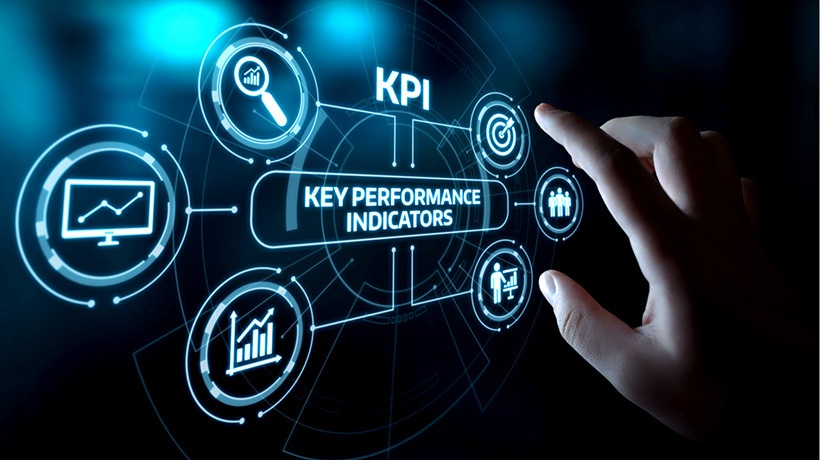Reasons Why You Should Measure Training
We all have limited resources and a lot of important problems to solve. We already give people some sort of credit for what they've done once they've done it. Why should we take the time and energy to try to measure the work we've already done?
To make a decision about the continuation of that work, or about how to do better and similar work in the future.
And only when the value of this decision is greater than the cost of making the measurement.
That's pretty much it. For those of us in Learning and Development, there is no other justifiable use case.
If you disagree, please do so in the comments, but thanks for reading the rest of the article first.
Measurements of anything that happened in the past can be quite useful in reducing uncertainty about the future. For cost centers, like Training, the only reason we care about measurements in the past is when someone is actively making a decision about an outcome in the future.
If someone asked you for a report or measurement or whatever, they would probably want to decide something—and they would need your data to help them do that. This isn't always upfront in the request, but it is inevitably there if you dig for it.
No matter how scientifically accurate our measurements may be, all we can ever do with them is reduce uncertainty about the future. There will be no guarantees. Science has been around for a long time, and it has never been in that business.
Science helps us make better guesses with the data we've gathered.
It's important to note that science does not tell us what data we need to gather, or how much of it we need to have before it counts for something. For instance, the "statistically relevant sample size" is never a set number or percentage. It is a value judgment. Your value judgment. You make the call.
How much measuring is enough?
How much data do you need?
After all, you don't need all the data there could ever be; you only need enough of a sampling of the data to make a guess (aka "an inference"). That's how the whole 'science thing' works.
The good news is, as Douglas Hubbard (inventor of Applied Information Economics) puts it: "You have more data than you think, and you need less than you think".
What Does That Mean?
Well, the more uncertainty you have, the more benefit you get from a simple observation.
In other words, if you know almost nothing, almost anything will tell you something.
Chances are that you do know something already. You probably know quite a few things, in fact. Here, you can listen to a 30min podcast where Doug expands on this idea.
So, what do you need to make your measurement? Not much.
- You don't need a database
Science brought us to databases, not the other way around. - You don't need to be original
Chances are you're not the first person in the history of the world to want to measure this. The internet is right here at your fingertips. - You don't need to account for every possibility
Because that would be impossible. So, take a deep breath...
All You Need Is A Question And An Observation. Maybe Some Analysis, Too
Example 1
Is there any relationship between the training supplied and the performance on the job?
Hmm...I don't know, how could we find out? Well, one way would be to:
- Give the training to one group of people on the job.
- Withhold the training from another group of people doing the same job in the same defined period of time.
- Compare who did better at their job within the defined period.
From this, you can extrapolate to all the people doing that job what benefit (or harm) was derived, and you can express this using whatever method the organization is already using to measure that. (And yes, the organization is measuring this already, otherwise, no one would ever be let go for failure to perform their job and no bonuses for doing this job well would ever be issued).
Example 2
Let's say the business wants to know how much time people spend in training annually, so they know how to better account for revenue-producing work hours next year. (Time spent learning instead of doing is important but, unless you are actually selling training, it does not produce revenue). Great! Let's measure time spent on training with a spot sample.
- Text/IM a randomized group of people in the organization at random times over a defined period. Ask them what they're doing at that very moment when they get the message.
- Some people will respond with "training" or something that sounds like it qualifies for what you're looking for.
- Divide the people who answered that way by all the people who answered other ways, and there you have your answer.
This is a much more of a 'real-world' and useful answer than any LMS calculus that can ever be produced. Plus, you're gathering additional data about the business that's relevant to their overall goal—and you haven't done any extra work to gather it.
Words like Quantitive Analysis sound scary. But as I hope you can see, you don't have to be a math person to do this kind of thing. It's 2018, and that's what spreadsheets are for. Get someone who likes to play in spreadsheets to help you when the math is intimidating. You already know someone like this, right?
To Review: Why Measure Training?
Because someone is going to decide something as a result.
And How Are You Going To Measure It?
As simply as possible to reduce uncertainty just enough for the person who is making the decision to actually decide.
Things might get more complicated if you let them. Yet, with the limited resources you have, and all the many important things you have to do, that's plenty.
With more time and resources, you could gather more data, and get more creative about how to use it. When people want more data from you than you have, it's fine to tell them this. But even then, if you are spending more on gathering and analyzing a measurement than the value of the decision that will be made as a result, you just overplayed your hand. Bust! Everybody loses.
You will never reach certainty. Know when to stop.
If you think I'm all wrong about this, please say so. That's what the comments are here for, and that's what I'll be measuring to gauge the success of this very article. Thanks in advance for your thoughts.









